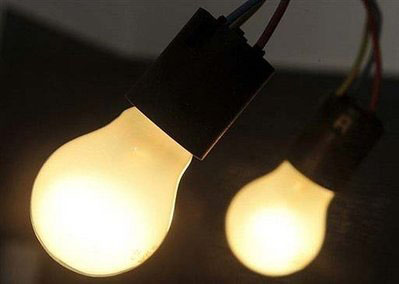Europe is about to death the incandescent light bulb
The European Union (EU) will end the production of traditional incandescent balls from September 2012 and switch to using energy-saving balls.
The majority of incandescent balls are being sold and used in Europe, which Thomas Edison invented in 1879. For nearly 130 years, the structure of this type of ball is almost unchanged. An EU report confirms that the old continent will save about $ 12 billion in electricity annually if using lower-power ball types. This electricity savings is enough to supply 11 million households in a year.
Therefore, from September next year, stores in Europe will only be allowed to sell incandescent lamps with a consumption capacity of less than 100 W. By September 2012, households across the continent will terminating the use of incandescent lamps. This is the content of a proposal proposed by the EU in Brussels on December 8.
"This decision will change the way we consume energy, while reducing 15 million tons of CO2 in the atmosphere every year. The annual electricity bill for every household in Europe will decrease on average. 50 euros, " said Andris Piebalgs, EU Commissioner for Energy.

The structure of incandescent lamps has remained almost unchanged since they were invented by Thomas Edison 129 years ago.Photo: AFP.
According to the report, about 85% of incandescent bulbs in Europe are consuming too much electricity. Meanwhile, EU countries have agreed to cut electricity consumption by 20% between now and 2020 to overcome the greenhouse effect.
New types of bulbs, such as compact fluorescent lamps, can help households save up to 80% of electricity for traditional incandescent lamps. Andris Piebalgs said that incandescent removal must be carried out step by step so that light bulb companies can install and apply new technologies, so that the quality of bulbs is guaranteed.
"We need to ensure that new light bulbs save money and reduce carbon dioxide, but the quality of the light is still maintained , " he said. The EU proposal will become law after it is adopted by the European Parliament. Many non-European countries such as Australia, New Zealand, the Philippines and Canada also claim they will restrict or prohibit the sale of traditional incandescent bulbs.
- Video: Flyte - Floating light 'can light 22 years
- Super power-saving light bulb
- Europe began to burn the incandescent ball
- Electric ballast by germs
- Light up the light bulbs with blood
- Control the light bulb by phone
- Use a light bulb to remove the tumor
- Video: Light bulb production process
- You may not believe it but the replacement of the LED lamp is an incandescent light
- Intelligent light bulbs help you sleep on time
- Can I use a light bulb to transmit Internet signals?
- Actually Edison is not the only one who invented the light bulb?
 Is the magnetic North Pole shift dangerous to humanity?
Is the magnetic North Pole shift dangerous to humanity? Washington legalizes the recycling of human bodies into fertilizer
Washington legalizes the recycling of human bodies into fertilizer Lightning stone - the mysterious guest
Lightning stone - the mysterious guest Stunned by the mysterious sunset, strange appearance
Stunned by the mysterious sunset, strange appearance